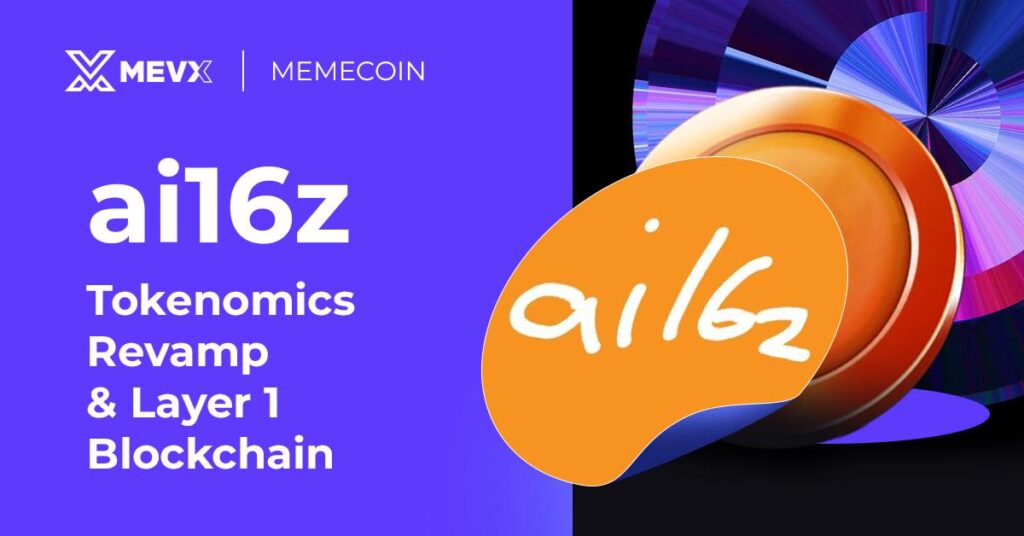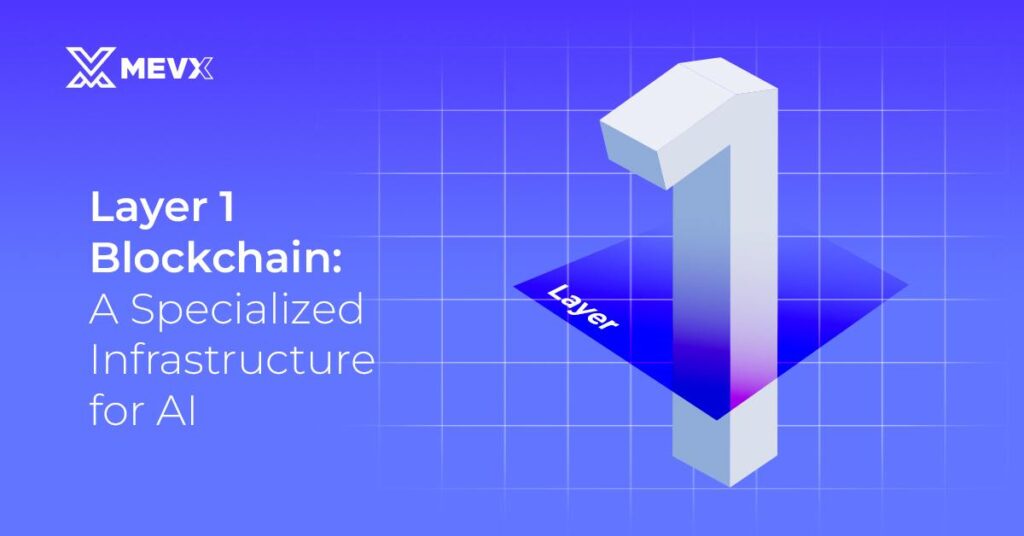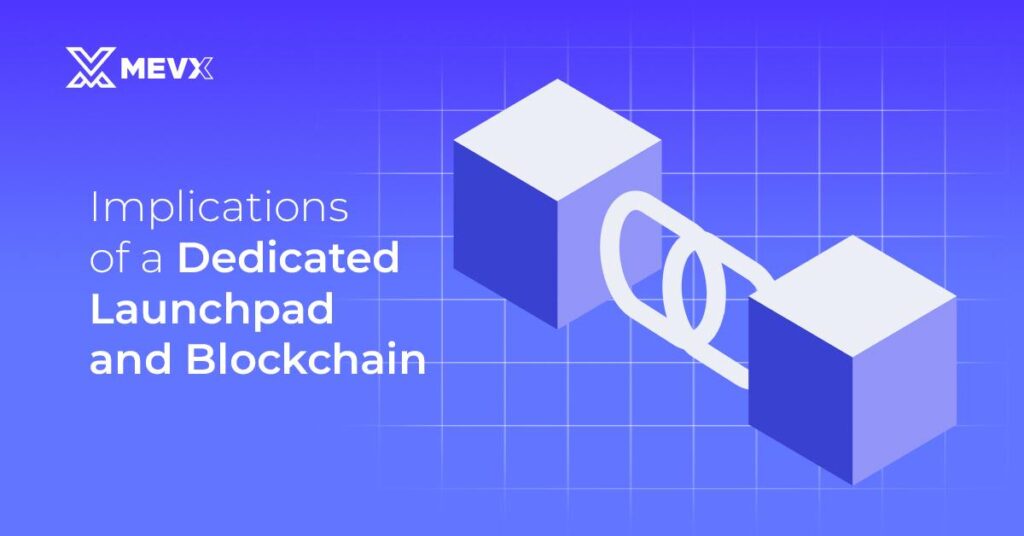As the year draws to a close, the intersection of AI and blockchain is getting more and more densely populated with innovation and investment interest. Perhaps no news has been more present than the AI Agent platform ai16z and its permissionless take on AI evolution direct to the chain. One of the biggest platforms in market capitalization, at $1.5B and growing, ai16z is about to make two catalyzing moves: a deep, new redesign of tokenomics and a native Layer 1 blockchain release.

Tokenomics Overhaul: Enhancing Utility and Incentivization
In its effort to solidify its position, ai16z is actively exploring a revamp of its tokenomics. Currently, the token acts as a cornerstone of the platform, but developers aim to enhance its utility and appeal further.
Key aspects under discussion include:
- Staking Mechanisms
- Token holders could earn rewards, such as early access to features or a share in platform fees.
- Staking would foster deeper engagement within the community, incentivizing long-term holding and participation.
- AI Agent Launchpad
- A launchpad is slated for release in Q1 2025.
- It will serve as a marketplace for new AI projects developed using the Eliza framework.
- The ai16z token will be the primary medium for interactions between AI agents, creating a self-sustaining ecosystem.
This overhaul aims to introduce a “flywheel effect,” where increased token utility drives demand, leading to a self-reinforcing cycle of growth and adoption.
Layer 1 Blockchain: A Specialized Infrastructure for AI

At the same time, ai16z is considering the development of its own Layer 1 blockchain with an architecture that specifically fits the peculiar needs of AI applications. It aspires to build a blockchain that represents the best way to deploy and operate autonomous AI agents.
Proposed Features of the Layer 1 Blockchain:
- AI-Centric Design: Infrastructure is specially designed to handle the demands of AI workloads.
- Open-Source Architecture: Promoting transparency and encouraging contributions from the global developer community.
- Token Integration: ai16z tokens will be the basic denomination for paying transaction fees, staking, and resource delegation.
- Node Incentives: A strong incentive mechanism, ensures the stability and security of the network.
This blockchain would place ai16z in the top positions in this emergent niche of blockchains oriented toward AI and would offer developers and users the right ecosystem for creating and building AI-driven dApps.
Market Performance and Community Response
Such strategic announcements are making huge waves in the market. Whale interest has blasted off for the ai16z token, with big buys sending it soaring. As it were, data shows that the price has gained 121% in the last week, more or less doubling in value for early investors.
So far, no big exchanges like Binance or OKX have officially listed the ai16z token, but it actively trades on platforms such as Gate.io, KuCoin, and MEXC. At such a tender age, ai16z already ranks among the top AI meme coins in market capitalization and outpaces its closest rivals: FARTCOIN, TURBO, and AIXBT.
Community discussions on platforms such as HackMD are optimistic about the changes to tokenomics and blockchain under development, but there is still an open call for a lot more decentralization-centered focus to be put on this, seeing as ai16z hasn’t fully moved into self-governance via its DAO—while the community has some inputs regarding governance, core decisions rest with the developers.
Implications of a Dedicated Launchpad and Blockchain
The most important development in terms of AI-token interaction will be the new AI agent launch pad. Based on the ai16z token for all interactions in an agent-to-agent design, a new set of use cases and economic activities are unlocked on the platform.

Key Potential Impacts:
- For Developers:
- Easier deployment and funding of AI projects.
- Access to a growing community of AI-focused developers and investors.
- For Investors:
- Increased token utility enhances its value proposition.
- Staking and liquidity pool mechanisms offer new earning opportunities.
The Layer 1 blockchain, meanwhile, addresses scalability and cost-efficiency challenges that traditional blockchains may face when handling AI workloads. Its development would mark ai16z as a pioneer in creating infrastructure tailored specifically to the demands of AI ecosystems.
Challenges and Risks
While the roadmap is ambitious, ai16z faces several challenges:
- Technical Hurdles:
- Building a Layer 1 blockchain from scratch requires significant resources, expertise, and time.
- Ensuring the blockchain is secure, scalable, and interoperable is critical.
- Market Competition:
- Other blockchain projects are also exploring AI integrations, leading to intense competition in this emerging niche.
- Regulatory Concerns:
- As a platform operating at the intersection of AI and blockchain, ai16z must navigate evolving regulatory landscapes to avoid potential roadblocks.
- Community Expectations:
- Balancing developer control with community governance remains a challenge, especially as the platform grows.
Conclusion: Paving the Future of AI and Blockchain
The major token economics revamp and the launch of Layer 1 of the blockchain are the two most critical points of ai16z. These two features will outline the working model for the whole platform and set standards for the integration of AI and blockchain technologies.
With a focus on utility, scalability, and community engagement, ai16z is well-placed to navigate this fast-evolving space. Notwithstanding the challenges, growth trajectory, and the very decent market response of the platform to date, they underpin meaningful innovation at work.
It could be the harbinger of a new generation of decentralized AI ecosystems as the fields of AI and blockchain continue to collide with ai16z making bold moves to push limits on what is possible in the world of on-chain intelligence.
You can find more updates on the meme coin market on MevX Blog!
Share on Social Media:
